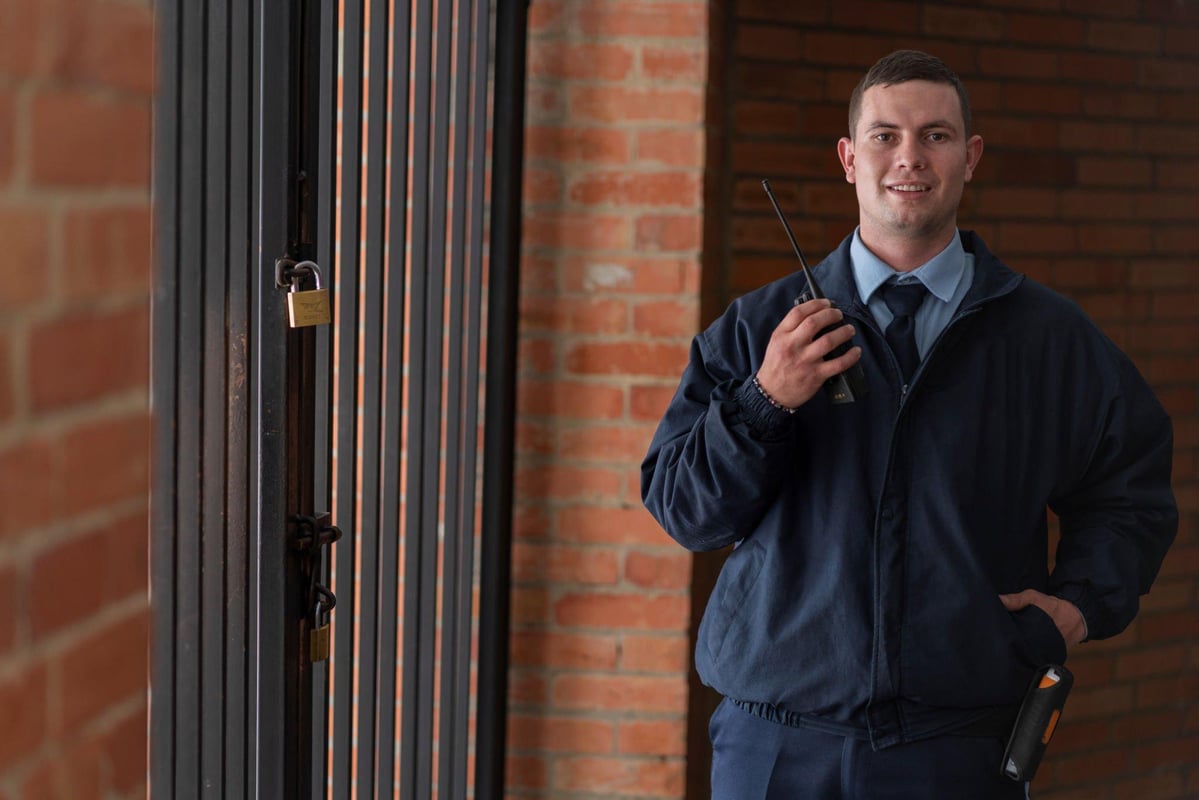
Financial aid (may be available)

Financial aid (may be available)

Financial aid (may be available)

Financial aid (may be available)
$80 total
$24.99 total
$80 total
No cost info

No cost info
No cost info
No cost info
No cost info
$120 total
No cost info
In a world where security has become a top priority, many are seeking to start a career as a security guard. For those living in El Paso, Texas, numerous training programs can equip you with the skills and knowledge needed to excel in this field. The following guide provides insights on what it takes to become a security guard, how to find the right training program, and what you should expect from your classes.

A security guard is a professional who is tasked with protecting property, assets, or individuals. They are often employed by businesses, government agencies, or private security firms. Their duties may include monitoring surveillance systems, patrolling property, enforcing laws on the premises, and responding to emergencies.
To become a security guard, you must meet certain training requirements. While these may vary by state and employer, they typically include:
Completing a state-approved training course
Passing a background check
Being at least 18 years old
Having a high school diploma or equivalent
In Texas, security guards are required to complete a Level II Training Course and pass an examination before they can be licensed.
When searching for a security guard training program in El Paso, there are several factors to consider:
Accreditation: The program should be recognized and approved by the Texas Department of Public Safety.
Course Content: The coursework should cover essential topics such as Texas laws and regulations, emergency response procedures, and conflict resolution.
Instructors: The trainers should be experienced professionals in the security field.
Flexibility: The program should offer flexible schedules to accommodate students who may be working or have other commitments.
Attending a security guard class involves a mix of theoretical and practical learning. Students can expect to:
Learn about the roles and responsibilities of a security guard
Understand the legal aspects of the job
Gain skills in communication, report writing, and emergency response
Participate in physical training activities
After completing the training course, students must pass an examination to become certified. The certification process in Texas is overseen by the Department of Public Safety. Once certified, security guards are eligible to apply for a variety of positions in the security industry.
After becoming a certified security guard, you can explore job opportunities in various sectors such as retail, hospitality, education, and healthcare. You may also find jobs with private security firms or government agencies.
After becoming a security guard, you may consider taking additional classes to enhance your skills or broaden your career prospects. This might include:
Firearms Training: In Texas, security guards can obtain a Commissioned Security Officer license, which allows them to carry a firearm on duty.
First Aid and CPR: These classes can equip you with vital skills for emergency situations.
Advanced Security Training: These courses offer in-depth knowledge on specific aspects of security, such as electronic surveillance or executive protection.
On Dreambound's platform, you can find a variety of vocational training programs that can complement your career as a security guard. For instance, becoming a Certified Medication Aide or a Pharmacy Technician can be a great way to diversify your skill set.
Continuing education is vital in the security industry as it helps professionals stay updated with the latest practices and technologies. It also provides opportunities for career advancement.
Joining professional associations or attending industry events can provide valuable networking opportunities. Networking can help security professionals learn from each other, find job opportunities, and stay updated with industry trends.
Security guards should familiarize themselves with the legal aspects of their job. This includes understanding the laws and regulations related to security work, use of force, and privacy rights.
Physical fitness is an essential aspect of being a security guard. Regular exercise and a healthy lifestyle can help you meet the physical demands of the job.
Starting a career as a security guard can be a rewarding experience. It offers the opportunity to play a crucial role in maintaining safety and order in society. Whether you're considering this profession as a lifelong career or a stepping stone to other opportunities, the right training program can set you on the path to success. Remember, the journey to becoming a security guard involves not just meeting the training requirements but also continuing education, networking, understanding the legal aspects, and maintaining physical fitness. Happy training, and good luck!
Explore Dreambound's in-depth guides, each shedding light on the unique requirements and challenges in cities across the US. For more insights, be sure to check out our other guides.
Weighing the possibilities of a career shift ? Dreambound has written many extensive guides to guide you in making informed decisions. Check out some of these resources below:
(https://dreambound.com/view/organizational-leadership-and-change-training-el-paso-tx)
Dreambound's platform allows prospective students to find the right educational program for them through searching, filtering, and connecting with our extensive selection of career & technical education partners.
Dreambound has over 70 programs across healthcare, technology, business, and industrial trades. This includes programs such as Medical Billing, Cybersecurity, and welding.
Some of our schools offer financial aid for those who qualify. Many others offer payment plans, where you can pay the cost of class over time.
Yes, Dreambound offers many online programs. On Dreambound's search, you can filter by online, in-person, and hybrid (part online, part in-person).
Dreambound is completely free for you to use! We are supported by schools and organizations who pay to advertise on our website, so we can offer all of our career resources for free.